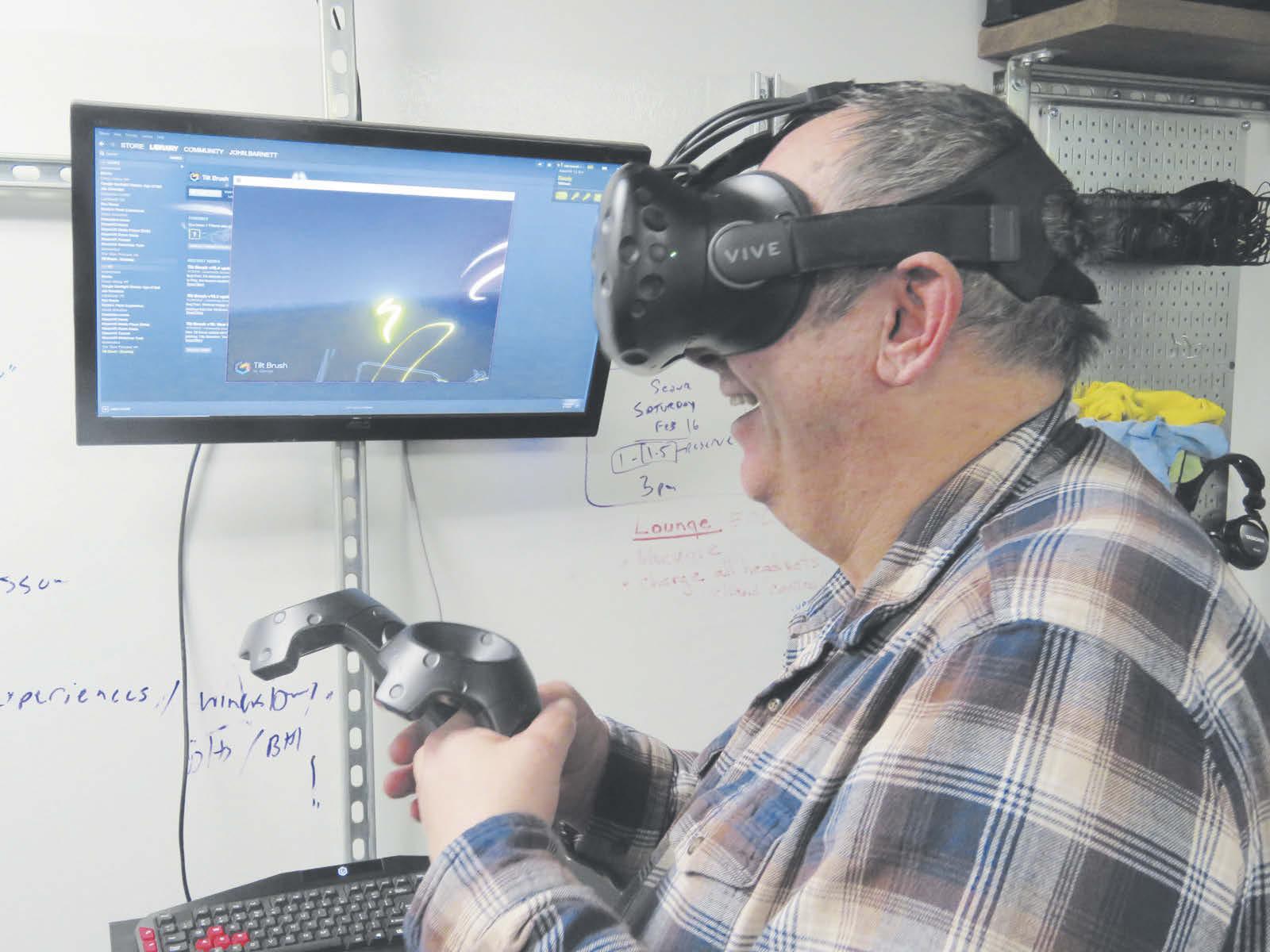
2 minute read
High Tech Job Training
High Tech Job Training
Innovative supports help people with disabilities become part of an important regional workforce
By Gail Allyn Short
To hold a job, live independently and become part of a community are ambitions many young adults have for themselves. But for people with intellectual and developmental disabilities, such goals can seem out of reach.
In Lafayette, Colorado, however, a nonprofit called Imagine! is helping nearly 4,300 people with disabilities in surrounding counties integrate into the workforce, local communities and live independently. Imagine! provides them with job training and placement, technical assistance and other supportive services.
“The greatest advantage of community integration over institutionalization is human dignity, respect and agency,” says Chris Baumgart, an assistive technology specialist for Imagine!
Imagine! operates several host and companion homes where clients can live in family settings in a neighborhood. It also runs two group homes outfitted with smart home technologies that make it easier for residents with disabilities to digitally control appliances and lights and perform routine tasks.

Imagine! technology helps people train for employment.
Photo courtesy of Imagine!
Additionally, Imagine! provides job training. For example, the nonprofit is experimenting with virtual reality as a new and innovative way to prepare their clients to work in the state’s booming craft beer industry.
The breweries in Boulder and Broomfield counties often hire Imagine! participants to assemble mixed beer packs, Baumgart says. But the assembling requires precision and accuracy; and in the fast-paced work environment, one-on-one, on-the-job training is often nonexistent.
So the tech team at Imagine! came up with a novel idea to train clients by partnering with a local tech company, Reality Garage in Boulder. Virtual reality technology generates a 3-D virtual world that users wearing an Oculus headset can see.
Chris Baumgart, Assistive Technology Specialist Imagine!
The teams created a training program where potential employees can practice putting beer packs together in a virtual environment. During the lessons, the Imagine! team can gauge trainees’ progress and offer additional support if needed.
For now, the virtual reality project is a pilot study, Baumgart says. But eight people supported by Imagine! have already participated.
“Everyone—regardless of age, gender, race, religion or ability—deserves the opportunity to be the best they can be,” says Baumgart. “And the only way we can make that happen is by giving people the opportunity to build and be part of a community.”
High Tech Support
ANCOR members nationwide are using advanced technologies to give people with disabilities the chance to live their lives safely and independently for an improved quality of life.
Core Services of Northeast Tennessee
- Core Services is partnering with the Tennessee Department of Intellectual/ Developmental Disabilities to provide smart home and other technologies to give individuals with disabilities greater independence.
215 University Parkway, Johnson City, Tenn., 37604, 423-928-2752, www.coreservicestn.com.
Goodlife Innovations, Inc.
- Located in Lenexa, Kansas, the nonprofit offers iLink, a one-touch system where seniors and people with disabilities living at home can instantly notify “professional neighbors” whenever they need assistance.
GoodLife Innovations Inc.,11627 West 79th St., Lenexa, Kansas, 66285, 913-225-8900, www.mygoodlife.org.
Aspire, Inc.
- Aspire Inc., in Aberdeen, South Dakota, has introduced people with communications support needs to apps for smartphones and tablets so they can communicate with caregivers and others with greater ease.
Aspire Foundation Inc., 607 North N. 4th St., Aberdeen, South Dakota 57401, www.aspiresd.org







